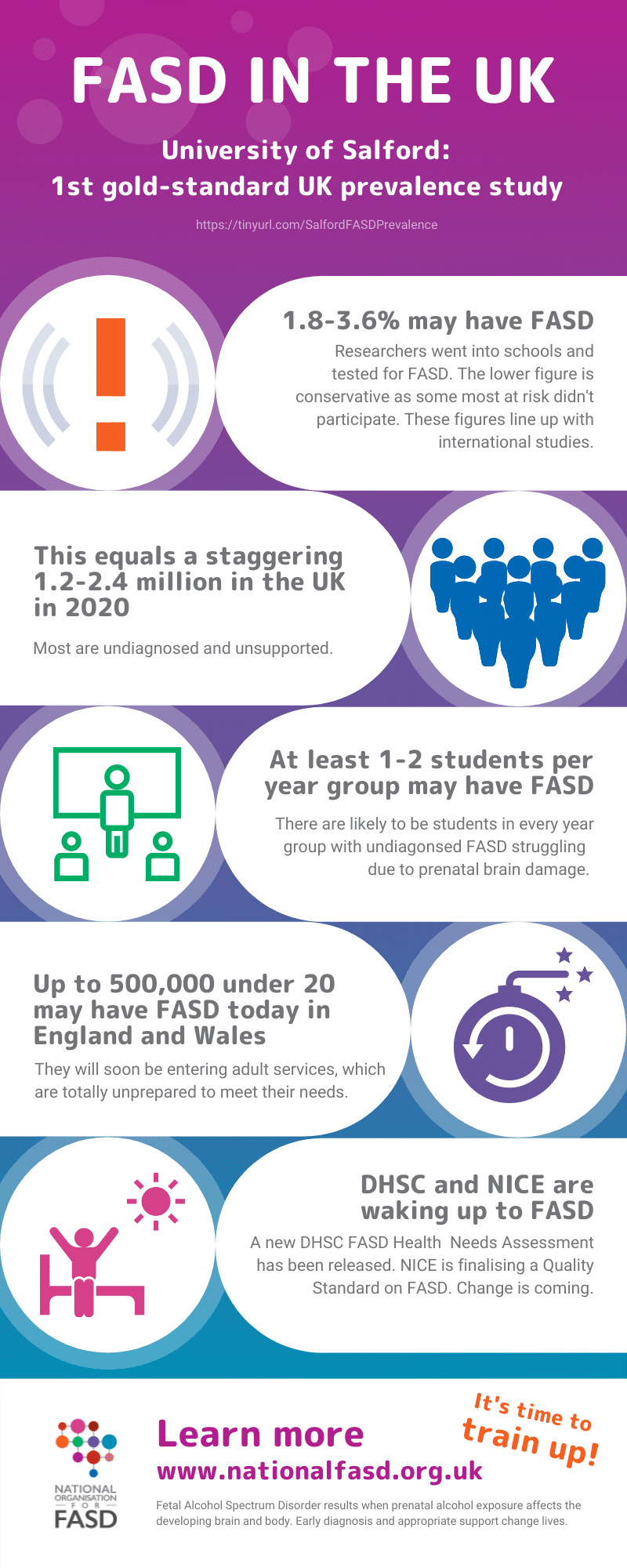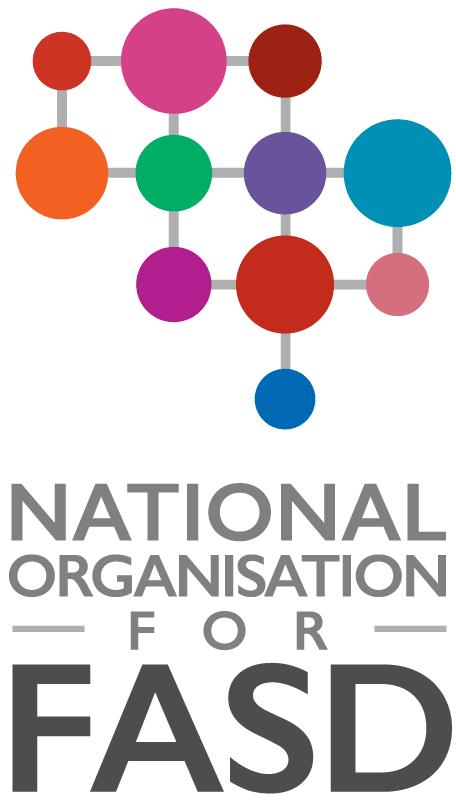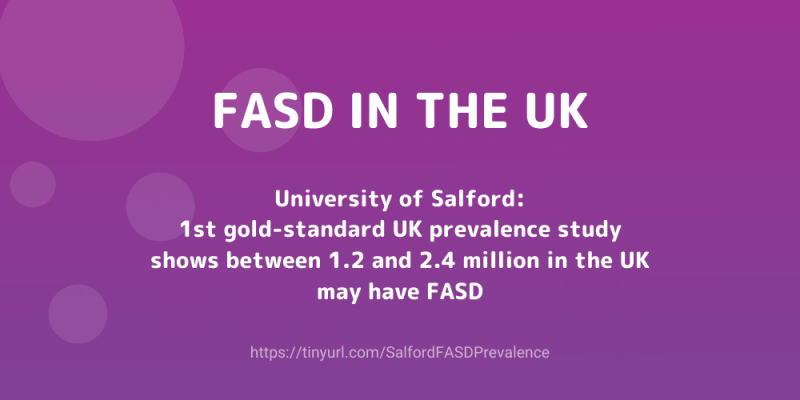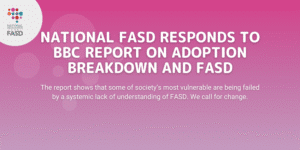The National Organisation for FASD welcomes the new Salford study and calls for action
The National Organisation for FASD is delighted that the UK’s first gold-standard active case-ascertainment FASD prevalence study has been published by researchers from the University of Salford. They have posted a summary of their findings here.
For a PDF of our press release, please click here.
1.8-3.6% may have FASD
According to a new study from the University of Salford
That means 1.2-2.4 million in the UK may have FASD
Most are undiagnosed and not receiving the support they need
These timely FASD figures are the tip of the iceberg and must lead to change
The study shows that FASD is prevalent and massively undiagnosed. What these numbers don’t show is the vast impact on society from allowing this situation to continue. A recent DHSC needs assessment says the financial impact can be in the billions.
Whilst this study shows that at least 1.8-3.6% of the children assessed met the criteria for an FASD diagnosis, some of the children at the highest risk of having FASD were unable to be included. This means that the prevalence figure is likely to be even higher. FASD is a prevalent, severe neurodevelopmental disorder and those that are affected deserve diagnosis so that their needs can be considered at every level.
This study joins the recent ground-breaking publication of the Department of Health and Social Care FASD Needs Assessment for England, the Public Health England report on alcohol harm in pregnancy and the upcoming NICE Quality Standard on FASD.
National FASD is encouraged that change is coming for those with FASD and their families. But to have real impact national, regional and local policy makers need to urgently come to the table with ideas and funding. Please see our policy pages for more information.
FASD rate is staggering on a national scale
Based on the Salford figures, up to a half million young people under 20 in England and Wales are careening toward their adult years with a hidden brain- based neurodevelopmental condition, undiagnosed and not receiving proper support. Nationally, the Salford figures equate to some 1.2-2.4 million in the UK who may have had FASD in 2020.
National FASD calls for funding for a UK-wide active case ascertainment FASD prevalence study and mandatory FASD training across sectors.
Urgent action on FASD is needed
While we recognise health and social care systems are under strain, investing now in proper pathways as outlined by the DHSC, NICE, SIGN, the BMA and other leading scientific bodies will stave off further strain on the systems that can arise if people with FASD are left unidentified.
National FASD calls for funding for a UK-wide active case ascertainment FASD prevalence study so that people living with this largely hidden disability can be diagnosed and offered appropriate management plans which research has shown can change life trajectories. This will also help with planning for local needs.
Training in FASD should be mandatory across health, social care, education, justice and associated sectors.
People with FASD deserve to part of the discussion
It’s critical to listen to those with FASD. It is a complex disability and everyone is affected differently. Nineteen-year old, Bailie, recently told us, “I want people to know that FASD is lifelong and people should take it seriously and learn more about it.” Eleven-year old Michael said, “My teachers need to learn more about it.” Fourteen-year old Geraldine said, “I’m neurodiverse and proud.”

To download a PDF of this infographic, click here.
For more information
For more about the University of Salford’s work on FASD
Please visit their website here.
About National FASD
The National Organisation for FASD provides support to people affected by Foetal Alcohol Spectrum Disorder (FASD), their families and communities; campaigns to raise public awareness; and promotes relevant policies and practices. We have been proud to create new training and resources through our partnership with Seashell, funded by the Department of Health and Social Care, as well as a new e-course with support from the Greater Manchester Health and Social Care Partnership. With Seashell, we have created a new “Me and My FASD Toolkit” that focuses on helping people with FASD to understand their diagnosis and to become self-advocates.
For more information please see our websites: www.nationalfasd.org.uk • www.preventfasd.info • www.FASD.me • eschool.nationalfasd.org.uk
National FASD is a sister organisation in the FASD UK Alliance.



